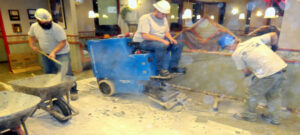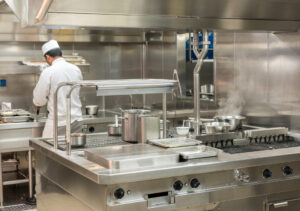Hotels strive to offer comfort, luxury, and sustainability to their guests while managing operational costs effectively. In this pursuit, the use of spray foam rigs has emerged as a valuable asset in improving infrastructure, optimizing energy efficiency, and reducing maintenance expenses. These rigs, equipped with cutting-edge technology, offer numerous advantages that can significantly benefit the hospitality industry.
Enhanced Insulation
Spray foam rigs provide superior insulation capabilities compared to traditional insulation materials. The sprayed polyurethane foam adheres seamlessly to surfaces, creating airtight seals that prevent air leaks, reducing energy consumption, and maintaining consistent indoor temperatures. In hotels, proper insulation is crucial to ensure guest comfort and minimize heating or cooling expenses throughout the year.
Energy Efficiency
By efficiently sealing walls, ceilings, and gaps, spray foam rigs contribute to improved energy efficiency within hotel buildings. This reduced energy usage not only lowers utility bills but also aligns with sustainability goals, making hotels more environmentally friendly. Moreover, the decreased reliance on heating and cooling systems can extend the lifespan of HVAC equipment, reducing maintenance costs for hotel management.
Structural Strength and Durability
Spray foam insulation, besides offering excellent thermal resistance, also reinforces the structural integrity of buildings. It acts as a moisture barrier, preventing water infiltration that could lead to mold growth or structural damage. This added durability translates to fewer repairs and maintenance expenses for hotel properties, ensuring a longer lifespan for the infrastructure.
Noise Reduction
In a bustling hotel environment, noise reduction is paramount for guest satisfaction. Spray foam insulation effectively dampens sound transmission between rooms, hallways, and floors, providing guests with a quieter and more peaceful stay. This feature is especially beneficial in urban areas or near transportation hubs where external noises can disturb guests’ comfort.
Customization and Versatility
Spray foam rigs offer versatility in application, allowing for customization according to a hotel’s specific needs. They can be used across various surfaces, from roofs and walls to attics and crawl spaces. The ability to adapt and apply the foam in tight or irregular spaces makes it an ideal choice for retrofitting existing structures or incorporating energy-efficient solutions into new hotel constructions.
Cost-Effectiveness
Despite the initial investment, the long-term cost savings associated with spray foam insulation make it a financially prudent choice for hotels. The reduction in energy bills, minimized repairs, extended equipment lifespan, and improved guest satisfaction contribute to a significant return on investment over time.
Environmental Impact
Using spray foam insulation aligns with the growing emphasis on sustainability in the hospitality industry. Its energy-saving properties contribute to reduced carbon emissions, making hotels more eco-friendly. Additionally, some formulations of spray foam utilize environmentally friendly materials, further reducing their ecological footprint.
Conclusion
In conclusion, incorporating spray foam rigs into hotel infrastructure offers a multitude of benefits, ranging from enhanced insulation and energy efficiency to cost-effectiveness and environmental sustainability. These rigs provide an opportunity for hotels to optimize their operations, improve guest experiences, and contribute positively to environmental conservation efforts.
As the hospitality industry continues to evolve, embracing innovative solutions like spray foam insulation becomes essential for hotels aiming to remain competitive while prioritizing sustainability and cost-effectiveness. By investing in these modern insulation methods, hotels can create a win-win scenario, achieving both operational efficiency and guest satisfaction.
Ultimately, the utilization of spray foam rigs emerges as a forward-thinking strategy for hotels seeking to upgrade their infrastructure and uphold high standards of comfort, durability, and environmental responsibility.









